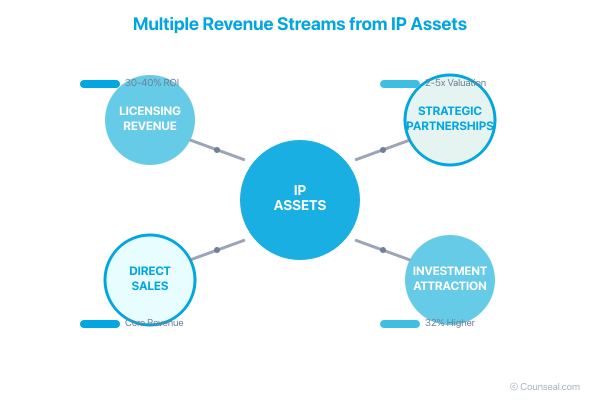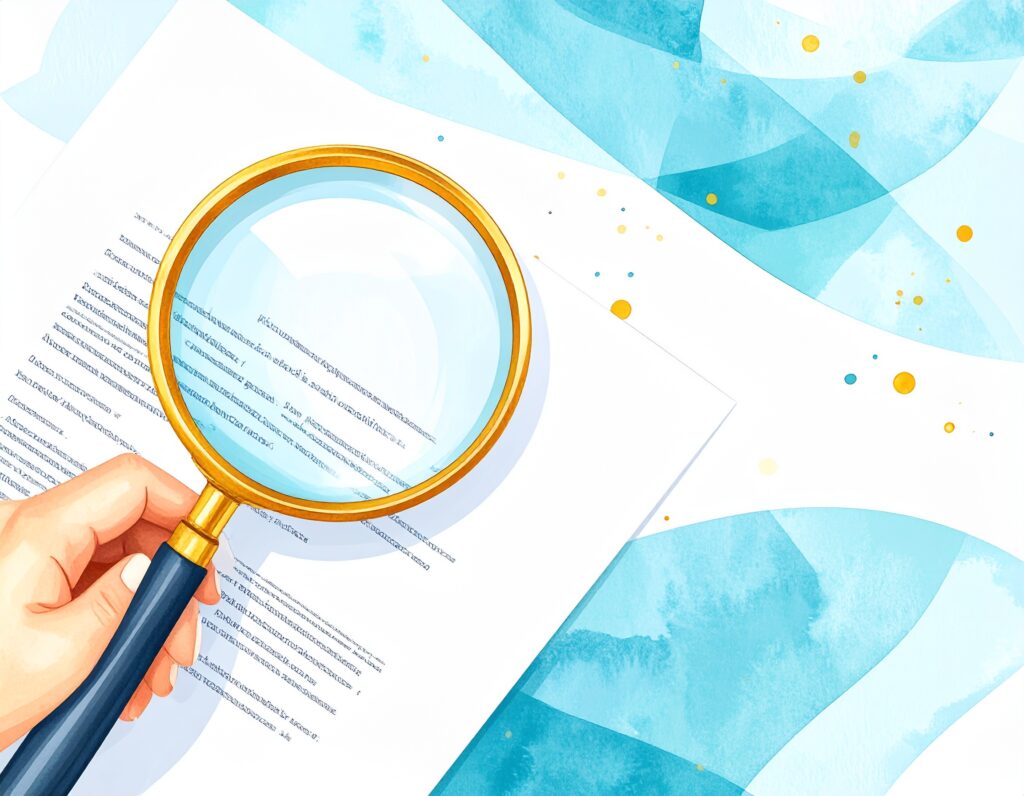Intellectual Property Considerations for Startups in Nigeria

by Counseal Team
Updated June 2, 2025

For Nigerian entrepreneurs navigating the bustling markets of Lagos or the emerging tech hubs of Abuja, intellectual property (IP) protection represents far more than legal formality—it’s the foundation upon which sustainable competitive advantage is built. In Nigeria’s rapidly evolving business landscape, where innovation drives growth and creativity fuels success, IP protection serves as both shield and strategic weapon.
For Nigerian entrepreneurs navigating the bustling markets of Lagos or the emerging tech hubs of Abuja, intellectual property (IP) protection represents far more than legal formality—it’s the foundation upon which sustainable competitive advantage is built. In Nigeria’s rapidly evolving business landscape, where innovation drives growth and creativity fuels success, IP protection serves as both shield and strategic weapon.
Consider this: according to the World Intellectual Property Organization, only 2% of Nigerian businesses have registered their trademarks, leaving 98% vulnerable to brand imitation and market confusion. This gap represents both a significant risk and an enormous opportunity for forward-thinking entrepreneurs.
The Strategic Imperative of IP Protection
Building Competitive Moats
Intellectual property functions as your business’s competitive moat—the protective barrier that prevents competitors from replicating your innovations. When Paystack developed their payment processing technology, robust IP protection wasn’t merely about legal compliance; it was about establishing market dominance that ultimately contributed to their $200 million acquisition by Stripe.
Your startup’s IP assets—whether they’re proprietary algorithms, distinctive branding, or innovative processes—represent the unique value propositions that set you apart in Nigeria’s competitive marketplace. These assets become increasingly valuable as your business scales, particularly when attracting international investors or partners.
Investor Magnetism Through IP
Research from the European Patent Office demonstrates that businesses with strong IP portfolios generate 32% more revenue per employee than those without. This statistic resonates powerfully with investors evaluating Nigerian startups. When venture capitalists and private equity firms assess investment opportunities, robust IP protection signals several critical factors:
- Risk mitigation: Protected innovations are less vulnerable to competitive threats
- Revenue potential: Licensed IP can create additional income streams
- Market positioning: Strong IP portfolios often correlate with market leadership
- Exit value: Companies with protected IP typically command higher valuations
Monetisation Beyond Core Operations
IP protection opens diverse revenue channels beyond your primary business model. ARM Holdings exemplifies this approach—rather than manufacturing semiconductors, they license their processor designs to giants like Apple, Samsung, and Nvidia, generating billions in revenue. Nigerian startups can similarly leverage their IP through licensing agreements, joint ventures, and strategic partnerships.

Nigeria’s IP Legal Architecture
Foundational Legislation
Nigeria’s IP framework encompasses several key statutes that provide comprehensive protection for innovative enterprises:
Trade Marks Act: Protects brand identifiers including names, logos, symbols, and even distinctive sounds or colours. Trademark protection in Nigeria lasts seven years initially, renewable for 14-year periods indefinitely. This legislation enables businesses to build and protect brand equity systematically.
Patents and Designs Act: Safeguards technical innovations and aesthetic designs. Patent protection extends 20 years from filing date, providing inventors substantial time to commercialise their innovations. Industrial design protection covers the visual aspects of products, crucial for consumer-facing businesses.
Copyright Act: Protects creative expressions including software code, written content, music, and audiovisual works. Copyright protection in Nigeria extends for the creator’s lifetime plus 70 years, offering long-term value for creative enterprises.
National Office for Technology Acquisition and Promotion (NOTAP) Act: Regulates technology transfer agreements, ensuring Nigerian companies receive fair terms when acquiring foreign technology. For startups partnering with international firms, NOTAP compliance prevents exploitative arrangements and promotes knowledge transfer.
Regulatory Ecosystem
Nigerian Copyright Commission (NCC): Administers copyright protection and enforcement, providing educational resources and investigating infringement cases. The NCC processed over 1,200 copyright cases in 2022, demonstrating both the growing importance of creative IP and the commission’s active enforcement role.
Trademarks, Patents and Designs Registry: Operating under the Ministry of Trade and Investment, this registry processes all trademark, patent, and design applications. Understanding their procedures and timelines is crucial for strategic IP planning.
National Office for Technology Acquisition and Promotion (NOTAP): Evaluates and registers technology transfer agreements, ensuring compliance with Nigerian development objectives. NOTAP approval is mandatory for certain technology partnerships, making early engagement essential.
International Framework Integration
Nigeria’s participation in global IP treaties significantly expands protection opportunities:
World Intellectual Property Organization (WIPO) Membership: Provides access to international filing systems including the Patent Cooperation Treaty (PCT), enabling protection across 153 countries through single applications.
African Regional Intellectual Property Organization (ARIPO): Facilitates streamlined IP protection across African markets, particularly valuable for startups planning continental expansion.
Madrid Protocol: Enables international trademark protection through single applications, essential for brands targeting global markets.
Get Expert Guidance on Your Nigerian Business Journey
Join 1000+ entrepreneurs who’ve transformed their Nigerian business plans with our strategic guidance. In one focused session, unlock:
- Market-ready opportunity assessment
- Regulatory compliance roadmap
- Implementation strategy tailored to your business
- Cost framework and resource planning
What You’ll Receive:
- Personalized Strategy Session with a Nigerian market specialist
- Custom Implementation Roadmap based on your specific business goals
- Regulatory Checklist tailored to your industry
- Priority Access to our implementation team when you’re ready
How It Works:
- Select your preferred time slot below
- Complete a brief business assessment
- Join your private Zoom session
- Receive your actionable implementation plan
Limited availability — Only 8 sessions offered each week
Strategic IP Protection Implementation
Trademark Registration Mastery
Trademark protection begins with comprehensive searching to ensure uniqueness. The registration process involves:
- Preliminary Search: Conduct thorough searches of existing trademarks to avoid conflicts
- Application Preparation: Submit detailed applications specifying goods/services covered
- Examination Process: Navigate registry review and potential objections
- Publication Period: Manage two-month opposition window
- Certificate Issuance: Secure official protection
Investment Considerations: Trademark registration typically costs ₦50,000-₦100,000, with professional fees adding ₦50,000-₦100,000. While seemingly substantial for early-stage startups, this investment provides seven years of initial protection, renewable indefinitely.
Strategic Timing: Register trademarks before public launch or significant marketing investment. Early protection prevents competitors from claiming similar marks and establishes priority rights.
Patent Strategy Development
Patent protection requires meeting three fundamental criteria:
- Novelty: The invention must be genuinely new
- Inventive Step: Non-obvious to experts in the field
- Industrial Application: Capable of practical use
Application Process:
- Prior Art Search: Comprehensive review of existing patents and publications
- Documentation Preparation: Detailed technical descriptions and claims
- Filing Strategy: Consider timing relative to product development and market entry
- Examination Navigation: Respond to examiner queries and objections
- Grant and Maintenance: Secure protection and maintain through annual fees
Investment Reality: Patent applications range from ₦200,000-₦1,000,000 depending on complexity and professional support. While substantial, patent protection provides 20-year market exclusivity, often justifying the investment for breakthrough innovations.
Copyright Protection Optimisation
Copyright protection is automatic upon creation but registration provides evidential advantages:
Registrable Works:
- Software code and technical documentation
- Marketing materials and website content
- Training materials and methodology documents
- Audiovisual content and presentations
Registration Benefits:
- Legal presumption of ownership
- Enhanced enforcement capabilities
- Licensing negotiation strength
- International protection facilitation
Process Efficiency: Copyright registration involves submitting applications to the Nigerian Copyright Commission with supporting documentation and sworn affidavits. Processing typically takes 3–6 months with fees under ₦50,000.
Trade Secret Protection Frameworks
Trade secrets require proactive protection through operational security:
Identification and Classification: Systematically identify proprietary information including customer lists, manufacturing processes, algorithms, and business strategies.
Legal Protection Mechanisms:
- Non-Disclosure Agreements (NDAs): Comprehensive confidentiality protection for employees, contractors, and partners
- Employment Contracts: Clear IP ownership and confidentiality clauses
- Contractor Agreements: Specific protections for temporary workers and consultants
Cybersecurity Integration: Implement robust digital security including encryption, access controls, and monitoring systems. Regular security audits and employee training reduce breach risks significantly.
Navigating IP Challenges
Infringement Detection and Response
Monitoring Systems: Establish systematic surveillance including:
- Google Alerts for brand mentions and product names
- Social media monitoring through tools like Hootsuite or Sprout Social
- Marketplace surveillance on platforms like Jumia and Konga
- Competitive intelligence gathering
Response Escalation:
- Documentation: Thoroughly document infringement evidence
- Cease and Desist: Send formal notification demanding cessation
- Negotiation: Explore licensing or settlement opportunities
- Alternative Dispute Resolution: Consider mediation or arbitration
- Litigation: Pursue court action when necessary
Cost Management: Legal action can be expensive, but early intervention often resolves issues cost-effectively. Cease and desist letters typically cost ₦50,000-₦100,000 but can prevent lengthy litigation.
Enforcement Reality Check
Nigeria’s IP enforcement mechanisms are strengthening but remain inconsistent. The Nigerian Copyright Commission reported processing over 1,200 infringement cases in 2022, indicating both growing IP awareness and enforcement activity.
Practical Strategies:
- Build relationships with enforcement agencies
- Document infringement meticulously
- Consider alternative dispute resolution
- Budget for potential legal costs
- Focus on high-value infringement cases
Budgeting for IP Protection
Initial Investment Planning:
- Trademark registration: ₦100,000-₦200,000 per mark
- Patent applications: ₦300,000-₦1,500,000 per application
- Copyright registration: ₦20,000-₦50,000 per work
- Legal consultation: ₦50,000-₦200,000 monthly retainer
Ongoing Maintenance:
- Trademark renewals every 7–14 years
- Patent maintenance fees annually
- Monitoring and enforcement budgets
- Legal support for disputes
Leveraging IP for Growth
Investment Attraction Through IP
Strong IP portfolios significantly enhance investment attractiveness. According to WIPO research, companies with robust IP protection are 30% more likely to secure funding. Nigerian success stories illustrate this principle:
Flutterwave: Leveraged proprietary payment technology IP to attract over $170 million in funding, demonstrating how protected innovations drive investor confidence.
Andela: Utilised proprietary training methodologies to secure $24 million in Series B funding, showing how even service-based IP can attract significant investment.
Monetisation Strategies
Licensing Opportunities: Generate recurring revenue by licensing IP to other businesses. Software companies can license code modules, while manufacturing firms can license production processes.
Franchising Potential: Strong IP protection enables franchising by protecting brand identity, operational procedures, and proprietary systems.
Strategic Partnerships: IP assets facilitate partnerships by providing clear frameworks for collaboration and shared value creation.
International Expansion Foundation
Robust IP protection facilitates international expansion by:
- Enabling trademark protection in target markets
- Supporting licensing arrangements with foreign partners
- Providing negotiation leverage in joint ventures
- Protecting against international infringement
Building IP-Centric Culture
Organisational Integration
Employee Education: Regular training programmes ensure staff understand IP importance and their role in protection. Topics should include:
- Confidentiality obligations and trade secret protection
- Innovation disclosure procedures
- IP ownership policies
- Infringement reporting mechanisms
Policy Development: Comprehensive IP policies should address:
- Invention disclosure procedures
- IP ownership allocation
- Confidentiality requirements
- Third-party IP respect
Innovation Encouragement: Create systems that reward innovation while ensuring proper protection. Consider innovation bonuses tied to successful IP applications.
Professional Support Systems
Legal Partnerships: Establish relationships with experienced IP attorneys who understand Nigerian law and international treaties. Look for firms with startup experience and flexible fee structures.
Regulatory Engagement: Build relationships with relevant agencies including the Copyright Commission and Patents Registry. Understanding their procedures and personnel facilitates smoother application processes.
Industry Networks: Join IP-focused professional associations and entrepreneur groups. Peer learning and shared experiences provide valuable insights and cost-effective solutions.
Implementation Roadmap
Phase 1: Assessment and Planning (Months 1–2)
IP Audit Execution:
- Inventory all potential IP assets
- Assess protection gaps and priorities
- Evaluate competitive landscape
- Develop protection timeline and budget
Team Assembly:
- Identify internal IP champions
- Engage qualified legal counsel
- Establish regulatory relationships
- Create employee awareness programmes
Phase 2: Core Protection (Months 3–6)
Priority Applications:
- File trademark applications for key brands
- Submit patent applications for breakthrough innovations
- Register critical copyrights
- Implement trade secret protection protocols
System Implementation:
- Deploy monitoring systems for infringement detection
- Establish employee IP policies and training
- Create invention disclosure procedures
- Implement cybersecurity measures for trade secret protection
Phase 3: Optimisation and Expansion (Months 7–12)
Portfolio Management:
- Monitor application progress and respond to office actions
- Expand protection to additional markets as appropriate
- Develop licensing and monetisation strategies
- Build enforcement capabilities and budgets
Strategic Integration:
- Integrate IP considerations into business development
- Use IP assets in fundraising and partnership discussions
- Develop international protection strategies
- Create IP-driven competitive advantages
Measuring IP Success
Key Performance Indicators
Protection Metrics:
- Number of IP applications filed and approved
- Time to protection for critical assets
- Coverage across target markets
- Cost per protected asset
Business Impact Measures:
- Investment attraction linked to IP portfolio
- Revenue generated through licensing or partnerships
- Competitive advantages maintained through IP protection
- Brand value enhancement through trademark protection
Risk Management Indicators:
- Infringement incidents detected and resolved
- Time and cost of enforcement actions
- Success rate in IP disputes
- Prevention of competitive copying
Strategic Recommendations
For Nigerian startups serious about long-term success, IP protection represents an essential investment rather than optional expense. Based on extensive experience with African startups and international investors, several strategic principles emerge:
Start Early: IP protection becomes more complex and expensive as businesses grow. Early investment in core protections pays exponential dividends.
Think Globally: Even if your current focus is domestic, consider international protection for key assets. Global expansion opportunities often arise unexpectedly.
Integrate with Business Strategy: IP protection should align with and support broader business objectives rather than existing as separate legal requirement.
Build Systematically: Develop comprehensive IP strategies rather than ad-hoc protections. Systematic approaches provide better coverage and cost efficiency.
Invest in Expertise: Quality legal counsel and professional support may seem expensive initially but prevent costly mistakes and enforcement challenges.
The Nigerian entrepreneurial ecosystem is experiencing unprecedented growth and international attention. Startups that invest in robust IP protection position themselves to capture the full value of their innovations while building sustainable competitive advantages.
Your intellectual property represents more than legal protection—it embodies your creative vision, technical innovation, and entrepreneurial ambition. In Nigeria’s dynamic business environment, proper IP protection transforms ideas into valuable assets, innovations into competitive advantages, and startups into industry leaders.
Ready to protect your innovations and unlock your startup’s full potential? The time for IP protection is now, and the opportunity for strategic advantage awaits those bold enough to act.
Start your IP protection journey today at counseal.com/start





